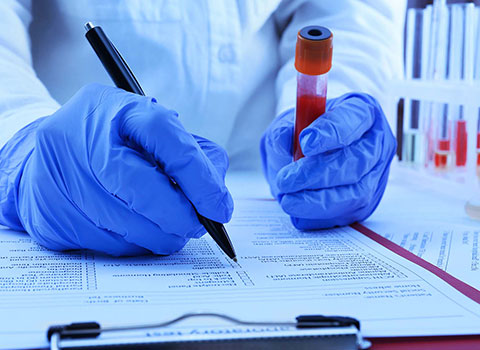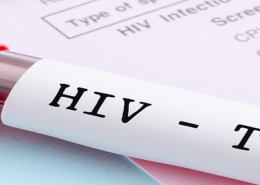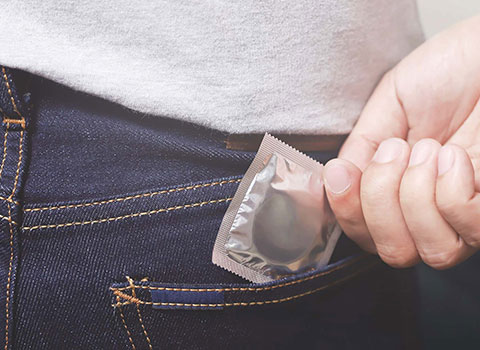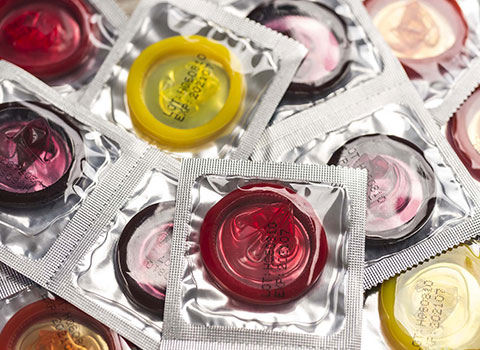 https://carethatfitsyou.org/wp-content/uploads/2023/01/CTFY-Web-image-8315_Undetectable.jpg
325
570
Admin
https://carethatfitsyou.org/wp-content/uploads/2020/04/care-that-fits-you.png
Admin2024-05-20 20:01:352024-06-10 19:21:29Información de la Mpox
https://carethatfitsyou.org/wp-content/uploads/2023/01/CTFY-Web-image-8315_Undetectable.jpg
325
570
Admin
https://carethatfitsyou.org/wp-content/uploads/2020/04/care-that-fits-you.png
Admin2024-05-20 20:01:352024-06-10 19:21:29Información de la Mpox
Does HIV undetectable mean HIV untransmittable?
There’s been a lot of talk recently about the terms “HIV viral suppression” and “HIV undetectable.” You may have seen the HIV “undetectable= HIV untransmittable (U=U)” campaign. What does it all mean?
When a person living with HIV takes their HIV meds consistently, the level of the virus, or viral load, in their blood can decrease to the point that HIV can’t be detected in testing.
When a person’s viral load is undetectable, it’s virtually impossible for them to pass HIV to their partners. The virus is still present in the body, yet their immune system and HIV medications are keeping it under control.
This means that people who are HIV undetectable don’t necessarily need to use condoms to prevent HIV transmission. But hold on! Being undetectable does not protect against other STDs (such as syphilis, gonorrhea, and chlamydia) so it’s still a good idea to discuss safer sex options—like using condoms—with your partners.
If a person with HIV doesn’t take their meds consistently or stops taking them, or the meds need to be swapped out for different ones, their viral load can become detectable again. When that happens, it’s possible to transmit HIV.
That’s why people living with HIV should get their viral load measured as often as their doctor advises. The frequency of viral load testing may vary depending on how long someone has been undetectable and how well they adhere to taking their meds.
The bottom line is an undetectable viral load is good news for everyone’s health—the health of the person who is living with HIV and the health of their partners.
.
 https://carethatfitsyou.org/wp-content/uploads/2023/01/CTFY-Web-image-8315_Undetectable.jpg
325
570
Admin
https://carethatfitsyou.org/wp-content/uploads/2020/04/care-that-fits-you.png
Admin2024-05-20 20:01:352024-06-10 19:21:29Información de la Mpox
https://carethatfitsyou.org/wp-content/uploads/2023/01/CTFY-Web-image-8315_Undetectable.jpg
325
570
Admin
https://carethatfitsyou.org/wp-content/uploads/2020/04/care-that-fits-you.png
Admin2024-05-20 20:01:352024-06-10 19:21:29Información de la Mpox https://carethatfitsyou.org/wp-content/uploads/2023/01/CTFY-Web-image-7658-hepa.jpg
325
570
Admin
https://carethatfitsyou.org/wp-content/uploads/2020/04/care-that-fits-you.png
Admin2024-05-17 17:52:322024-05-28 21:22:00DoxyPEP: Find out if it’s right for you
https://carethatfitsyou.org/wp-content/uploads/2023/01/CTFY-Web-image-7658-hepa.jpg
325
570
Admin
https://carethatfitsyou.org/wp-content/uploads/2020/04/care-that-fits-you.png
Admin2024-05-17 17:52:322024-05-28 21:22:00DoxyPEP: Find out if it’s right for you https://carethatfitsyou.org/wp-content/uploads/2023/10/8375_Clean-2.jpg
565
1200
Admin
https://carethatfitsyou.org/wp-content/uploads/2020/04/care-that-fits-you.png
Admin2023-10-12 13:28:512023-12-15 17:42:27Shigella: Protect yourself and your partners
https://carethatfitsyou.org/wp-content/uploads/2023/10/8375_Clean-2.jpg
565
1200
Admin
https://carethatfitsyou.org/wp-content/uploads/2020/04/care-that-fits-you.png
Admin2023-10-12 13:28:512023-12-15 17:42:27Shigella: Protect yourself and your partners https://carethatfitsyou.org/wp-content/uploads/2023/01/is-there-a-cure-STDs-480x350-1.png
350
480
Administrator
https://carethatfitsyou.org/wp-content/uploads/2020/04/care-that-fits-you.png
Administrator2023-02-01 21:31:302023-02-03 17:45:21New Gonorrhea Strain: What You Need to Know
https://carethatfitsyou.org/wp-content/uploads/2023/01/is-there-a-cure-STDs-480x350-1.png
350
480
Administrator
https://carethatfitsyou.org/wp-content/uploads/2020/04/care-that-fits-you.png
Administrator2023-02-01 21:31:302023-02-03 17:45:21New Gonorrhea Strain: What You Need to Know https://carethatfitsyou.org/wp-content/uploads/2022/08/Mpox_SelfCare_ResizedPhotos_300x250_0723.jpg
250
300
Administrator
https://carethatfitsyou.org/wp-content/uploads/2020/04/care-that-fits-you.png
Administrator2022-08-18 16:22:192024-06-10 19:42:13Mpox Information
https://carethatfitsyou.org/wp-content/uploads/2022/08/Mpox_SelfCare_ResizedPhotos_300x250_0723.jpg
250
300
Administrator
https://carethatfitsyou.org/wp-content/uploads/2020/04/care-that-fits-you.png
Administrator2022-08-18 16:22:192024-06-10 19:42:13Mpox Information https://carethatfitsyou.org/wp-content/uploads/2022/04/HIV-testing.jpg
300
1000
Administrator
https://carethatfitsyou.org/wp-content/uploads/2020/04/care-that-fits-you.png
Administrator2022-04-19 15:23:482024-06-12 19:52:34What to Expect: HIV Testing
https://carethatfitsyou.org/wp-content/uploads/2022/04/HIV-testing.jpg
300
1000
Administrator
https://carethatfitsyou.org/wp-content/uploads/2020/04/care-that-fits-you.png
Administrator2022-04-19 15:23:482024-06-12 19:52:34What to Expect: HIV Testing https://carethatfitsyou.org/wp-content/uploads/2022/04/CTFYArticleHeader1_Small_1547949728.jpg
1707
2560
Administrator
https://carethatfitsyou.org/wp-content/uploads/2020/04/care-that-fits-you.png
Administrator2022-04-05 17:14:162023-12-29 19:26:11What to Expect: Starting PrEP
https://carethatfitsyou.org/wp-content/uploads/2022/04/CTFYArticleHeader1_Small_1547949728.jpg
1707
2560
Administrator
https://carethatfitsyou.org/wp-content/uploads/2020/04/care-that-fits-you.png
Administrator2022-04-05 17:14:162023-12-29 19:26:11What to Expect: Starting PrEP https://carethatfitsyou.org/wp-content/uploads/2022/04/CTFYArticleHeader2_Small_1338750215.jpg
1708
2560
Administrator
https://carethatfitsyou.org/wp-content/uploads/2020/04/care-that-fits-you.png
Administrator2022-04-05 17:14:022024-06-12 19:47:08What to Expect: Getting Tested for STDs/STIs
https://carethatfitsyou.org/wp-content/uploads/2022/04/CTFYArticleHeader2_Small_1338750215.jpg
1708
2560
Administrator
https://carethatfitsyou.org/wp-content/uploads/2020/04/care-that-fits-you.png
Administrator2022-04-05 17:14:022024-06-12 19:47:08What to Expect: Getting Tested for STDs/STIs https://carethatfitsyou.org/wp-content/uploads/2020/03/Recently-diagnosed-with-HIV-Ask-your-doctor-these-questions.jpg
350
480
Administrator
https://carethatfitsyou.org/wp-content/uploads/2020/04/care-that-fits-you.png
Administrator2022-01-31 19:30:162023-12-29 19:32:03Apretude – the first injectable PrEP
https://carethatfitsyou.org/wp-content/uploads/2020/03/Recently-diagnosed-with-HIV-Ask-your-doctor-these-questions.jpg
350
480
Administrator
https://carethatfitsyou.org/wp-content/uploads/2020/04/care-that-fits-you.png
Administrator2022-01-31 19:30:162023-12-29 19:32:03Apretude – the first injectable PrEP https://carethatfitsyou.org/wp-content/uploads/2021/06/40_b-1.jpg
350
480
Administrator
https://carethatfitsyou.org/wp-content/uploads/2020/04/care-that-fits-you.png
Administrator2021-06-11 19:31:522021-09-23 15:59:52Getting your partners treated for chlamydia
https://carethatfitsyou.org/wp-content/uploads/2021/06/40_b-1.jpg
350
480
Administrator
https://carethatfitsyou.org/wp-content/uploads/2020/04/care-that-fits-you.png
Administrator2021-06-11 19:31:522021-09-23 15:59:52Getting your partners treated for chlamydia https://carethatfitsyou.org/wp-content/uploads/2020/03/Talking-to-your-doctor-about-PrEP-f.jpg
350
480
ctfyadmin
https://carethatfitsyou.org/wp-content/uploads/2020/04/care-that-fits-you.png
ctfyadmin2020-03-23 21:37:482024-02-28 19:58:12Talking to your provider about PrEP
https://carethatfitsyou.org/wp-content/uploads/2020/03/Talking-to-your-doctor-about-PrEP-f.jpg
350
480
ctfyadmin
https://carethatfitsyou.org/wp-content/uploads/2020/04/care-that-fits-you.png
ctfyadmin2020-03-23 21:37:482024-02-28 19:58:12Talking to your provider about PrEP https://carethatfitsyou.org/wp-content/uploads/2020/03/How-do-I-choose-the-right-condom-f.jpg
350
480
ctfyadmin
https://carethatfitsyou.org/wp-content/uploads/2020/04/care-that-fits-you.png
ctfyadmin2020-03-23 21:26:382021-09-23 16:07:46How do I choose the right condom?
https://carethatfitsyou.org/wp-content/uploads/2020/03/How-do-I-choose-the-right-condom-f.jpg
350
480
ctfyadmin
https://carethatfitsyou.org/wp-content/uploads/2020/04/care-that-fits-you.png
ctfyadmin2020-03-23 21:26:382021-09-23 16:07:46How do I choose the right condom? https://carethatfitsyou.org/wp-content/uploads/2020/03/Conversation-starters-f.jpg
350
480
ctfyadmin
https://carethatfitsyou.org/wp-content/uploads/2020/04/care-that-fits-you.png
ctfyadmin2020-03-23 21:22:082021-09-23 16:08:20Conversation starters
https://carethatfitsyou.org/wp-content/uploads/2020/03/Conversation-starters-f.jpg
350
480
ctfyadmin
https://carethatfitsyou.org/wp-content/uploads/2020/04/care-that-fits-you.png
ctfyadmin2020-03-23 21:22:082021-09-23 16:08:20Conversation starters https://carethatfitsyou.org/wp-content/uploads/2020/03/Whats-the-deal-with-oral-sex-f.jpg
350
480
ctfyadmin
https://carethatfitsyou.org/wp-content/uploads/2020/04/care-that-fits-you.png
ctfyadmin2020-03-23 21:03:022021-09-23 16:08:54What’s the deal with oral sex?
https://carethatfitsyou.org/wp-content/uploads/2020/03/Whats-the-deal-with-oral-sex-f.jpg
350
480
ctfyadmin
https://carethatfitsyou.org/wp-content/uploads/2020/04/care-that-fits-you.png
ctfyadmin2020-03-23 21:03:022021-09-23 16:08:54What’s the deal with oral sex? https://carethatfitsyou.org/wp-content/uploads/2020/03/Tips-for-coming-out-to-your-doctor-f.jpg
350
480
ctfyadmin
https://carethatfitsyou.org/wp-content/uploads/2020/04/care-that-fits-you.png
ctfyadmin2020-03-23 20:59:162021-09-23 16:09:28Tips for coming out to your doctor
https://carethatfitsyou.org/wp-content/uploads/2020/03/Tips-for-coming-out-to-your-doctor-f.jpg
350
480
ctfyadmin
https://carethatfitsyou.org/wp-content/uploads/2020/04/care-that-fits-you.png
ctfyadmin2020-03-23 20:59:162021-09-23 16:09:28Tips for coming out to your doctor https://carethatfitsyou.org/wp-content/uploads/2020/03/Practicing-safer-sex-when-you-have-genital-herpes-f.jpg
350
480
ctfyadmin
https://carethatfitsyou.org/wp-content/uploads/2020/04/care-that-fits-you.png
ctfyadmin2020-03-23 20:54:232021-09-23 15:03:04Practicing safer sex when you have genital herpes
https://carethatfitsyou.org/wp-content/uploads/2020/03/Practicing-safer-sex-when-you-have-genital-herpes-f.jpg
350
480
ctfyadmin
https://carethatfitsyou.org/wp-content/uploads/2020/04/care-that-fits-you.png
ctfyadmin2020-03-23 20:54:232021-09-23 15:03:04Practicing safer sex when you have genital herpes https://carethatfitsyou.org/wp-content/uploads/2020/03/You-tested-positive-for-gonorrhea-or-chlamydia-Whats-next-f.jpg
350
480
ctfyadmin
https://carethatfitsyou.org/wp-content/uploads/2020/04/care-that-fits-you.png
ctfyadmin2020-03-23 20:50:102021-09-23 15:03:46You tested positive for gonorrhea or chlamydia. What’s next?
https://carethatfitsyou.org/wp-content/uploads/2020/03/You-tested-positive-for-gonorrhea-or-chlamydia-Whats-next-f.jpg
350
480
ctfyadmin
https://carethatfitsyou.org/wp-content/uploads/2020/04/care-that-fits-you.png
ctfyadmin2020-03-23 20:50:102021-09-23 15:03:46You tested positive for gonorrhea or chlamydia. What’s next? https://carethatfitsyou.org/wp-content/uploads/2020/03/You-tested-positive-for-HIV-Now-what-f.jpg
350
480
ctfyadmin
https://carethatfitsyou.org/wp-content/uploads/2020/04/care-that-fits-you.png
ctfyadmin2020-03-23 20:45:282021-09-23 15:04:34You tested positive for HIV. Now what?
https://carethatfitsyou.org/wp-content/uploads/2020/03/You-tested-positive-for-HIV-Now-what-f.jpg
350
480
ctfyadmin
https://carethatfitsyou.org/wp-content/uploads/2020/04/care-that-fits-you.png
ctfyadmin2020-03-23 20:45:282021-09-23 15:04:34You tested positive for HIV. Now what? https://carethatfitsyou.org/wp-content/uploads/2020/03/Ask-for-these-tests-at-your-next-checkup-f.jpg
350
480
ctfyadmin
https://carethatfitsyou.org/wp-content/uploads/2020/04/care-that-fits-you.png
ctfyadmin2020-03-23 20:17:462023-11-13 03:15:47Ask for these tests at your next checkup
https://carethatfitsyou.org/wp-content/uploads/2020/03/Ask-for-these-tests-at-your-next-checkup-f.jpg
350
480
ctfyadmin
https://carethatfitsyou.org/wp-content/uploads/2020/04/care-that-fits-you.png
ctfyadmin2020-03-23 20:17:462023-11-13 03:15:47Ask for these tests at your next checkup https://carethatfitsyou.org/wp-content/uploads/2020/03/Does-HIV-undetectable-mean-HIV-untransmittable-f3.jpg
350
480
ctfyadmin
https://carethatfitsyou.org/wp-content/uploads/2020/04/care-that-fits-you.png
ctfyadmin2020-03-23 20:13:492021-09-23 15:26:46Does HIV undetectable mean HIV untransmittable?
https://carethatfitsyou.org/wp-content/uploads/2020/03/Does-HIV-undetectable-mean-HIV-untransmittable-f3.jpg
350
480
ctfyadmin
https://carethatfitsyou.org/wp-content/uploads/2020/04/care-that-fits-you.png
ctfyadmin2020-03-23 20:13:492021-09-23 15:26:46Does HIV undetectable mean HIV untransmittable? https://carethatfitsyou.org/wp-content/uploads/2020/03/Eight-conversations-to-have-with-your-doctor-f.jpg
350
480
ctfyadmin
https://carethatfitsyou.org/wp-content/uploads/2020/04/care-that-fits-you.png
ctfyadmin2020-03-23 17:56:462021-09-23 15:28:17Eight conversations to have with your doctor
https://carethatfitsyou.org/wp-content/uploads/2020/03/Eight-conversations-to-have-with-your-doctor-f.jpg
350
480
ctfyadmin
https://carethatfitsyou.org/wp-content/uploads/2020/04/care-that-fits-you.png
ctfyadmin2020-03-23 17:56:462021-09-23 15:28:17Eight conversations to have with your doctor https://carethatfitsyou.org/wp-content/uploads/2020/03/Hep-A-B-C-Whats-the-difference-Light.jpg
350
480
ctfyadmin
https://carethatfitsyou.org/wp-content/uploads/2020/04/care-that-fits-you.png
ctfyadmin2020-03-23 17:29:052024-02-28 19:56:45Hep A, B, and C: What’s the difference?
https://carethatfitsyou.org/wp-content/uploads/2020/03/Hep-A-B-C-Whats-the-difference-Light.jpg
350
480
ctfyadmin
https://carethatfitsyou.org/wp-content/uploads/2020/04/care-that-fits-you.png
ctfyadmin2020-03-23 17:29:052024-02-28 19:56:45Hep A, B, and C: What’s the difference? https://carethatfitsyou.org/wp-content/uploads/2020/03/A-few-things-to-know-about-syphilis-f.jpg
350
480
ctfyadmin
https://carethatfitsyou.org/wp-content/uploads/2020/04/care-that-fits-you.png
ctfyadmin2020-03-23 16:42:362024-06-12 19:49:33A few things to know about syphilis
https://carethatfitsyou.org/wp-content/uploads/2020/03/A-few-things-to-know-about-syphilis-f.jpg
350
480
ctfyadmin
https://carethatfitsyou.org/wp-content/uploads/2020/04/care-that-fits-you.png
ctfyadmin2020-03-23 16:42:362024-06-12 19:49:33A few things to know about syphilis https://carethatfitsyou.org/wp-content/uploads/2020/03/PrEP-vs-PEP-Whats-the-difference-f.jpg
350
480
ctfyadmin
https://carethatfitsyou.org/wp-content/uploads/2020/04/care-that-fits-you.png
ctfyadmin2020-03-21 22:29:262023-12-15 18:19:24PrEP vs PEP: What’s the difference?
https://carethatfitsyou.org/wp-content/uploads/2020/03/PrEP-vs-PEP-Whats-the-difference-f.jpg
350
480
ctfyadmin
https://carethatfitsyou.org/wp-content/uploads/2020/04/care-that-fits-you.png
ctfyadmin2020-03-21 22:29:262023-12-15 18:19:24PrEP vs PEP: What’s the difference? https://carethatfitsyou.org/wp-content/uploads/2020/03/Talking-to-your-partner-about-safer-sex-f.jpg
350
480
ctfyadmin
https://carethatfitsyou.org/wp-content/uploads/2020/04/care-that-fits-you.png
ctfyadmin2020-03-21 22:23:442021-09-23 15:57:27Talking to your partner about safer sex
https://carethatfitsyou.org/wp-content/uploads/2020/03/Talking-to-your-partner-about-safer-sex-f.jpg
350
480
ctfyadmin
https://carethatfitsyou.org/wp-content/uploads/2020/04/care-that-fits-you.png
ctfyadmin2020-03-21 22:23:442021-09-23 15:57:27Talking to your partner about safer sex https://carethatfitsyou.org/wp-content/uploads/2020/03/How-to-pay-for-PrEP-f-1.jpg
350
480
ctfyadmin
https://carethatfitsyou.org/wp-content/uploads/2020/04/care-that-fits-you.png
ctfyadmin2020-03-13 19:18:212024-06-12 19:48:11How to pay for PrEP
https://carethatfitsyou.org/wp-content/uploads/2020/03/How-to-pay-for-PrEP-f-1.jpg
350
480
ctfyadmin
https://carethatfitsyou.org/wp-content/uploads/2020/04/care-that-fits-you.png
ctfyadmin2020-03-13 19:18:212024-06-12 19:48:11How to pay for PrEP https://carethatfitsyou.org/wp-content/uploads/2023/01/CTFY-Web-image-8315_Undetectable.jpg
325
570
Admin
https://carethatfitsyou.org/wp-content/uploads/2020/04/care-that-fits-you.png
Admin2024-05-20 20:01:352024-06-10 19:21:29Información de la Mpox
https://carethatfitsyou.org/wp-content/uploads/2023/01/CTFY-Web-image-8315_Undetectable.jpg
325
570
Admin
https://carethatfitsyou.org/wp-content/uploads/2020/04/care-that-fits-you.png
Admin2024-05-20 20:01:352024-06-10 19:21:29Información de la Mpox https://carethatfitsyou.org/wp-content/uploads/2023/01/CTFY-Web-image-7658-hepa.jpg
325
570
Admin
https://carethatfitsyou.org/wp-content/uploads/2020/04/care-that-fits-you.png
Admin2024-05-17 17:52:322024-05-28 21:22:00DoxyPEP: Find out if it’s right for you
https://carethatfitsyou.org/wp-content/uploads/2023/01/CTFY-Web-image-7658-hepa.jpg
325
570
Admin
https://carethatfitsyou.org/wp-content/uploads/2020/04/care-that-fits-you.png
Admin2024-05-17 17:52:322024-05-28 21:22:00DoxyPEP: Find out if it’s right for you https://carethatfitsyou.org/wp-content/uploads/2023/10/8375_Clean-2.jpg
565
1200
Admin
https://carethatfitsyou.org/wp-content/uploads/2020/04/care-that-fits-you.png
Admin2023-10-12 13:28:512023-12-15 17:42:27Shigella: Protect yourself and your partners
https://carethatfitsyou.org/wp-content/uploads/2023/10/8375_Clean-2.jpg
565
1200
Admin
https://carethatfitsyou.org/wp-content/uploads/2020/04/care-that-fits-you.png
Admin2023-10-12 13:28:512023-12-15 17:42:27Shigella: Protect yourself and your partners https://carethatfitsyou.org/wp-content/uploads/2023/01/is-there-a-cure-STDs-480x350-1.png
350
480
Administrator
https://carethatfitsyou.org/wp-content/uploads/2020/04/care-that-fits-you.png
Administrator2023-02-01 21:31:302023-02-03 17:45:21New Gonorrhea Strain: What You Need to Know
https://carethatfitsyou.org/wp-content/uploads/2023/01/is-there-a-cure-STDs-480x350-1.png
350
480
Administrator
https://carethatfitsyou.org/wp-content/uploads/2020/04/care-that-fits-you.png
Administrator2023-02-01 21:31:302023-02-03 17:45:21New Gonorrhea Strain: What You Need to Know https://carethatfitsyou.org/wp-content/uploads/2022/08/Mpox_SelfCare_ResizedPhotos_300x250_0723.jpg
250
300
Administrator
https://carethatfitsyou.org/wp-content/uploads/2020/04/care-that-fits-you.png
Administrator2022-08-18 16:22:192024-06-10 19:42:13Mpox Information
https://carethatfitsyou.org/wp-content/uploads/2022/08/Mpox_SelfCare_ResizedPhotos_300x250_0723.jpg
250
300
Administrator
https://carethatfitsyou.org/wp-content/uploads/2020/04/care-that-fits-you.png
Administrator2022-08-18 16:22:192024-06-10 19:42:13Mpox Information https://carethatfitsyou.org/wp-content/uploads/2022/04/HIV-testing.jpg
300
1000
Administrator
https://carethatfitsyou.org/wp-content/uploads/2020/04/care-that-fits-you.png
Administrator2022-04-19 15:23:482024-06-12 19:52:34What to Expect: HIV Testing
https://carethatfitsyou.org/wp-content/uploads/2022/04/HIV-testing.jpg
300
1000
Administrator
https://carethatfitsyou.org/wp-content/uploads/2020/04/care-that-fits-you.png
Administrator2022-04-19 15:23:482024-06-12 19:52:34What to Expect: HIV Testing https://carethatfitsyou.org/wp-content/uploads/2022/04/CTFYArticleHeader1_Small_1547949728.jpg
1707
2560
Administrator
https://carethatfitsyou.org/wp-content/uploads/2020/04/care-that-fits-you.png
Administrator2022-04-05 17:14:162023-12-29 19:26:11What to Expect: Starting PrEP
https://carethatfitsyou.org/wp-content/uploads/2022/04/CTFYArticleHeader1_Small_1547949728.jpg
1707
2560
Administrator
https://carethatfitsyou.org/wp-content/uploads/2020/04/care-that-fits-you.png
Administrator2022-04-05 17:14:162023-12-29 19:26:11What to Expect: Starting PrEP https://carethatfitsyou.org/wp-content/uploads/2022/04/CTFYArticleHeader2_Small_1338750215.jpg
1708
2560
Administrator
https://carethatfitsyou.org/wp-content/uploads/2020/04/care-that-fits-you.png
Administrator2022-04-05 17:14:022024-06-12 19:47:08What to Expect: Getting Tested for STDs/STIs
https://carethatfitsyou.org/wp-content/uploads/2022/04/CTFYArticleHeader2_Small_1338750215.jpg
1708
2560
Administrator
https://carethatfitsyou.org/wp-content/uploads/2020/04/care-that-fits-you.png
Administrator2022-04-05 17:14:022024-06-12 19:47:08What to Expect: Getting Tested for STDs/STIs https://carethatfitsyou.org/wp-content/uploads/2020/03/Recently-diagnosed-with-HIV-Ask-your-doctor-these-questions.jpg
350
480
Administrator
https://carethatfitsyou.org/wp-content/uploads/2020/04/care-that-fits-you.png
Administrator2022-01-31 19:30:162023-12-29 19:32:03Apretude – the first injectable PrEP
https://carethatfitsyou.org/wp-content/uploads/2020/03/Recently-diagnosed-with-HIV-Ask-your-doctor-these-questions.jpg
350
480
Administrator
https://carethatfitsyou.org/wp-content/uploads/2020/04/care-that-fits-you.png
Administrator2022-01-31 19:30:162023-12-29 19:32:03Apretude – the first injectable PrEP https://carethatfitsyou.org/wp-content/uploads/2021/06/40_b-1.jpg
350
480
Administrator
https://carethatfitsyou.org/wp-content/uploads/2020/04/care-that-fits-you.png
Administrator2021-06-11 19:31:522021-09-23 15:59:52Getting your partners treated for chlamydia
https://carethatfitsyou.org/wp-content/uploads/2021/06/40_b-1.jpg
350
480
Administrator
https://carethatfitsyou.org/wp-content/uploads/2020/04/care-that-fits-you.png
Administrator2021-06-11 19:31:522021-09-23 15:59:52Getting your partners treated for chlamydia https://carethatfitsyou.org/wp-content/uploads/2020/03/Talking-to-your-doctor-about-PrEP-f.jpg
350
480
ctfyadmin
https://carethatfitsyou.org/wp-content/uploads/2020/04/care-that-fits-you.png
ctfyadmin2020-03-23 21:37:482024-02-28 19:58:12Talking to your provider about PrEP
https://carethatfitsyou.org/wp-content/uploads/2020/03/Talking-to-your-doctor-about-PrEP-f.jpg
350
480
ctfyadmin
https://carethatfitsyou.org/wp-content/uploads/2020/04/care-that-fits-you.png
ctfyadmin2020-03-23 21:37:482024-02-28 19:58:12Talking to your provider about PrEP https://carethatfitsyou.org/wp-content/uploads/2020/03/How-do-I-choose-the-right-condom-f.jpg
350
480
ctfyadmin
https://carethatfitsyou.org/wp-content/uploads/2020/04/care-that-fits-you.png
ctfyadmin2020-03-23 21:26:382021-09-23 16:07:46How do I choose the right condom?
https://carethatfitsyou.org/wp-content/uploads/2020/03/How-do-I-choose-the-right-condom-f.jpg
350
480
ctfyadmin
https://carethatfitsyou.org/wp-content/uploads/2020/04/care-that-fits-you.png
ctfyadmin2020-03-23 21:26:382021-09-23 16:07:46How do I choose the right condom? https://carethatfitsyou.org/wp-content/uploads/2020/03/Conversation-starters-f.jpg
350
480
ctfyadmin
https://carethatfitsyou.org/wp-content/uploads/2020/04/care-that-fits-you.png
ctfyadmin2020-03-23 21:22:082021-09-23 16:08:20Conversation starters
https://carethatfitsyou.org/wp-content/uploads/2020/03/Conversation-starters-f.jpg
350
480
ctfyadmin
https://carethatfitsyou.org/wp-content/uploads/2020/04/care-that-fits-you.png
ctfyadmin2020-03-23 21:22:082021-09-23 16:08:20Conversation starters https://carethatfitsyou.org/wp-content/uploads/2020/03/Whats-the-deal-with-oral-sex-f.jpg
350
480
ctfyadmin
https://carethatfitsyou.org/wp-content/uploads/2020/04/care-that-fits-you.png
ctfyadmin2020-03-23 21:03:022021-09-23 16:08:54What’s the deal with oral sex?
https://carethatfitsyou.org/wp-content/uploads/2020/03/Whats-the-deal-with-oral-sex-f.jpg
350
480
ctfyadmin
https://carethatfitsyou.org/wp-content/uploads/2020/04/care-that-fits-you.png
ctfyadmin2020-03-23 21:03:022021-09-23 16:08:54What’s the deal with oral sex? https://carethatfitsyou.org/wp-content/uploads/2020/03/Tips-for-coming-out-to-your-doctor-f.jpg
350
480
ctfyadmin
https://carethatfitsyou.org/wp-content/uploads/2020/04/care-that-fits-you.png
ctfyadmin2020-03-23 20:59:162021-09-23 16:09:28Tips for coming out to your doctor
https://carethatfitsyou.org/wp-content/uploads/2020/03/Tips-for-coming-out-to-your-doctor-f.jpg
350
480
ctfyadmin
https://carethatfitsyou.org/wp-content/uploads/2020/04/care-that-fits-you.png
ctfyadmin2020-03-23 20:59:162021-09-23 16:09:28Tips for coming out to your doctor https://carethatfitsyou.org/wp-content/uploads/2020/03/Practicing-safer-sex-when-you-have-genital-herpes-f.jpg
350
480
ctfyadmin
https://carethatfitsyou.org/wp-content/uploads/2020/04/care-that-fits-you.png
ctfyadmin2020-03-23 20:54:232021-09-23 15:03:04Practicing safer sex when you have genital herpes
https://carethatfitsyou.org/wp-content/uploads/2020/03/Practicing-safer-sex-when-you-have-genital-herpes-f.jpg
350
480
ctfyadmin
https://carethatfitsyou.org/wp-content/uploads/2020/04/care-that-fits-you.png
ctfyadmin2020-03-23 20:54:232021-09-23 15:03:04Practicing safer sex when you have genital herpes https://carethatfitsyou.org/wp-content/uploads/2020/03/You-tested-positive-for-gonorrhea-or-chlamydia-Whats-next-f.jpg
350
480
ctfyadmin
https://carethatfitsyou.org/wp-content/uploads/2020/04/care-that-fits-you.png
ctfyadmin2020-03-23 20:50:102021-09-23 15:03:46You tested positive for gonorrhea or chlamydia. What’s next?
https://carethatfitsyou.org/wp-content/uploads/2020/03/You-tested-positive-for-gonorrhea-or-chlamydia-Whats-next-f.jpg
350
480
ctfyadmin
https://carethatfitsyou.org/wp-content/uploads/2020/04/care-that-fits-you.png
ctfyadmin2020-03-23 20:50:102021-09-23 15:03:46You tested positive for gonorrhea or chlamydia. What’s next? https://carethatfitsyou.org/wp-content/uploads/2020/03/You-tested-positive-for-HIV-Now-what-f.jpg
350
480
ctfyadmin
https://carethatfitsyou.org/wp-content/uploads/2020/04/care-that-fits-you.png
ctfyadmin2020-03-23 20:45:282021-09-23 15:04:34You tested positive for HIV. Now what?
https://carethatfitsyou.org/wp-content/uploads/2020/03/You-tested-positive-for-HIV-Now-what-f.jpg
350
480
ctfyadmin
https://carethatfitsyou.org/wp-content/uploads/2020/04/care-that-fits-you.png
ctfyadmin2020-03-23 20:45:282021-09-23 15:04:34You tested positive for HIV. Now what? https://carethatfitsyou.org/wp-content/uploads/2020/03/Ask-for-these-tests-at-your-next-checkup-f.jpg
350
480
ctfyadmin
https://carethatfitsyou.org/wp-content/uploads/2020/04/care-that-fits-you.png
ctfyadmin2020-03-23 20:17:462023-11-13 03:15:47Ask for these tests at your next checkup
https://carethatfitsyou.org/wp-content/uploads/2020/03/Ask-for-these-tests-at-your-next-checkup-f.jpg
350
480
ctfyadmin
https://carethatfitsyou.org/wp-content/uploads/2020/04/care-that-fits-you.png
ctfyadmin2020-03-23 20:17:462023-11-13 03:15:47Ask for these tests at your next checkup https://carethatfitsyou.org/wp-content/uploads/2020/03/Does-HIV-undetectable-mean-HIV-untransmittable-f3.jpg
350
480
ctfyadmin
https://carethatfitsyou.org/wp-content/uploads/2020/04/care-that-fits-you.png
ctfyadmin2020-03-23 20:13:492021-09-23 15:26:46Does HIV undetectable mean HIV untransmittable?
https://carethatfitsyou.org/wp-content/uploads/2020/03/Does-HIV-undetectable-mean-HIV-untransmittable-f3.jpg
350
480
ctfyadmin
https://carethatfitsyou.org/wp-content/uploads/2020/04/care-that-fits-you.png
ctfyadmin2020-03-23 20:13:492021-09-23 15:26:46Does HIV undetectable mean HIV untransmittable? https://carethatfitsyou.org/wp-content/uploads/2020/03/Eight-conversations-to-have-with-your-doctor-f.jpg
350
480
ctfyadmin
https://carethatfitsyou.org/wp-content/uploads/2020/04/care-that-fits-you.png
ctfyadmin2020-03-23 17:56:462021-09-23 15:28:17Eight conversations to have with your doctor
https://carethatfitsyou.org/wp-content/uploads/2020/03/Eight-conversations-to-have-with-your-doctor-f.jpg
350
480
ctfyadmin
https://carethatfitsyou.org/wp-content/uploads/2020/04/care-that-fits-you.png
ctfyadmin2020-03-23 17:56:462021-09-23 15:28:17Eight conversations to have with your doctor https://carethatfitsyou.org/wp-content/uploads/2020/03/Hep-A-B-C-Whats-the-difference-Light.jpg
350
480
ctfyadmin
https://carethatfitsyou.org/wp-content/uploads/2020/04/care-that-fits-you.png
ctfyadmin2020-03-23 17:29:052024-02-28 19:56:45Hep A, B, and C: What’s the difference?
https://carethatfitsyou.org/wp-content/uploads/2020/03/Hep-A-B-C-Whats-the-difference-Light.jpg
350
480
ctfyadmin
https://carethatfitsyou.org/wp-content/uploads/2020/04/care-that-fits-you.png
ctfyadmin2020-03-23 17:29:052024-02-28 19:56:45Hep A, B, and C: What’s the difference? https://carethatfitsyou.org/wp-content/uploads/2020/03/A-few-things-to-know-about-syphilis-f.jpg
350
480
ctfyadmin
https://carethatfitsyou.org/wp-content/uploads/2020/04/care-that-fits-you.png
ctfyadmin2020-03-23 16:42:362024-06-12 19:49:33A few things to know about syphilis
https://carethatfitsyou.org/wp-content/uploads/2020/03/A-few-things-to-know-about-syphilis-f.jpg
350
480
ctfyadmin
https://carethatfitsyou.org/wp-content/uploads/2020/04/care-that-fits-you.png
ctfyadmin2020-03-23 16:42:362024-06-12 19:49:33A few things to know about syphilis https://carethatfitsyou.org/wp-content/uploads/2020/03/PrEP-vs-PEP-Whats-the-difference-f.jpg
350
480
ctfyadmin
https://carethatfitsyou.org/wp-content/uploads/2020/04/care-that-fits-you.png
ctfyadmin2020-03-21 22:29:262023-12-15 18:19:24PrEP vs PEP: What’s the difference?
https://carethatfitsyou.org/wp-content/uploads/2020/03/PrEP-vs-PEP-Whats-the-difference-f.jpg
350
480
ctfyadmin
https://carethatfitsyou.org/wp-content/uploads/2020/04/care-that-fits-you.png
ctfyadmin2020-03-21 22:29:262023-12-15 18:19:24PrEP vs PEP: What’s the difference? https://carethatfitsyou.org/wp-content/uploads/2020/03/Talking-to-your-partner-about-safer-sex-f.jpg
350
480
ctfyadmin
https://carethatfitsyou.org/wp-content/uploads/2020/04/care-that-fits-you.png
ctfyadmin2020-03-21 22:23:442021-09-23 15:57:27Talking to your partner about safer sex
https://carethatfitsyou.org/wp-content/uploads/2020/03/Talking-to-your-partner-about-safer-sex-f.jpg
350
480
ctfyadmin
https://carethatfitsyou.org/wp-content/uploads/2020/04/care-that-fits-you.png
ctfyadmin2020-03-21 22:23:442021-09-23 15:57:27Talking to your partner about safer sexLooking for PrEP or
other services?
Search for services near you.
Is PrEP right for you?
Take a short quiz to learn more.






